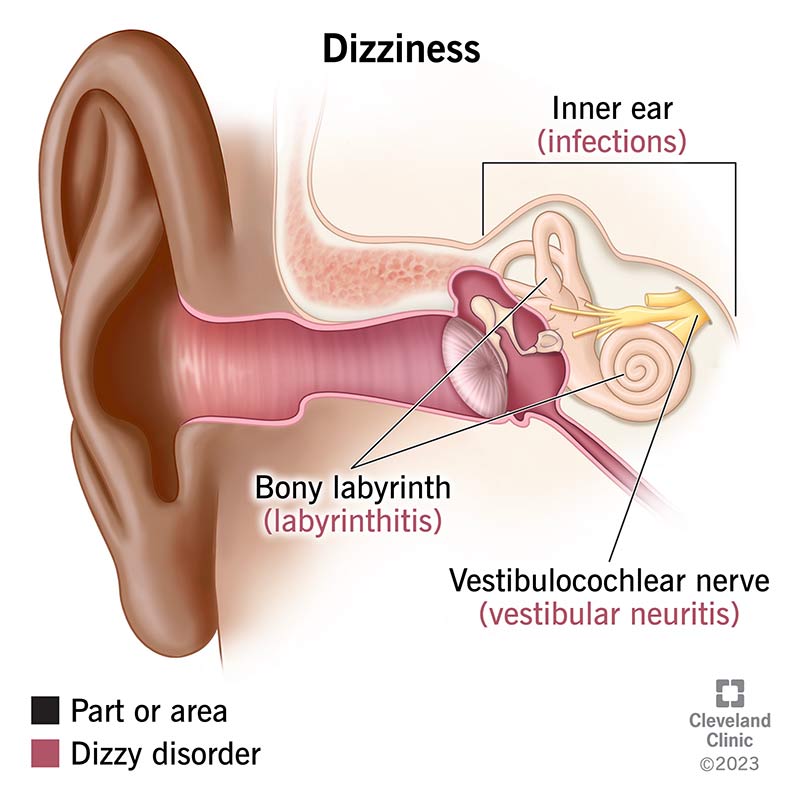Feeling lightheaded or unsteady can be an unsettling experience, leaving you wondering what might be causing it and how to find relief. In this article, we will explore the various causes and symptoms of dizziness. By gaining a better understanding of this common affliction, you can take proactive steps towards managing and treating it effectively. So, whether you’ve been experiencing bouts of dizziness or are simply curious to learn more, read on to discover the insights that may help you navigate this dizzying sensation with ease. Dizziness is a common sensation that many people experience at some point in their lives. It can be a temporary inconvenience or a chronic condition that significantly impacts one’s quality of life. If you have been experiencing dizziness, understanding the possible causes is essential in finding a solution. In this comprehensive article, we will explore the various causes of dizziness and the symptoms associated with each, providing you with valuable insights that can assist you in identifying the root cause of your dizziness.
Inner Ear Disorders
One of the most common causes of dizziness is inner ear disorders. The inner ear plays a crucial role in maintaining balance, and when it functions abnormally, it can lead to dizziness. Three primary inner ear disorders known to cause dizziness are benign paroxysmal positional vertigo (BPPV), Ménière’s disease, and vestibular neuritis.
Benign Paroxysmal Positional Vertigo, or BPPV, is characterized by brief episodes of intense spinning sensations triggered by changes in head position. These episodes can be short-lived but often lead to extreme dizziness and even nausea.
Ménière’s disease is a disorder that affects the inner ear and typically leads to recurring episodes of vertigo, hearing loss, tinnitus (ringing in the ears), and a feeling of pressure in the affected ear.
Vestibular neuritis is an inflammation of the vestibular nerve, which connects the inner ear to the brainstem. This inflammation can cause sudden, severe vertigo that lasts for several days or even weeks.
Medications
Certain medications can also be responsible for causing dizziness. It is essential to be aware of the potential side effects of medications you are taking, as dizziness may be among them. Some classes of medications that may cause dizziness include antidepressants, antihypertensives (blood pressure medications), sedatives, and anti-anxiety medications.
Antidepressants, especially those known as selective serotonin reuptake inhibitors (SSRIs), can sometimes disrupt the balance of neurotransmitters in the brain, leading to dizziness as a side effect.
Antihypertensives, which are medications used to lower blood pressure, can sometimes cause dizziness by lowering blood pressure too much, especially when standing or changing positions.
Sedatives and anti-anxiety medications can have a calming effect on the central nervous system, leading to feelings of drowsiness and dizziness, especially when first starting the medication or when the dosage is adjusted.
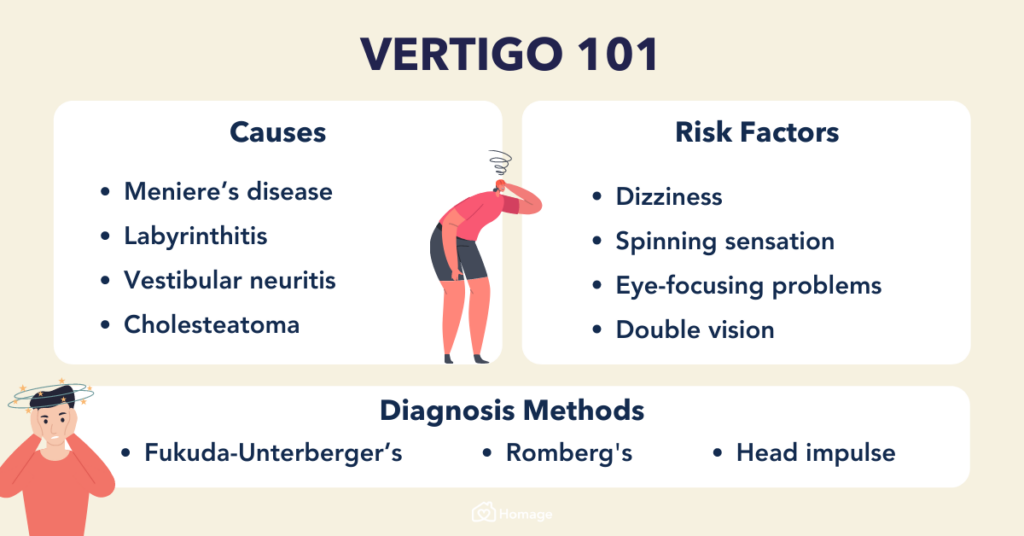
Low Blood Pressure
Low blood pressure, or hypotension, can be another cause of dizziness. When your blood pressure drops significantly, it can lead to inadequate blood flow to the brain, resulting in dizziness. There are several types of low blood pressure that can cause dizziness, including orthostatic hypotension, neurally mediated hypotension, and postprandial hypotension.
Orthostatic hypotension refers to a sudden drop in blood pressure that occurs when standing up from a sitting or lying position. This rapid change can be caused by factors such as dehydration, certain medications, or nervous system disorders.
Neurally mediated hypotension occurs when there is a miscommunication between the heart and the brain, leading to a drop in blood pressure. This can happen after prolonged standing or during situations that trigger a vasovagal response, such as seeing blood or experiencing intense emotions.
Postprandial hypotension is a drop in blood pressure that occurs after eating a meal. This can happen due to blood being diverted to the digestive system to aid in the digestion process, resulting in less blood flow to the brain.
Anxiety or Panic Disorders
Anxiety and panic disorders can often manifest with physical symptoms, including dizziness. The mind-body connection is powerful, and when anxiety or panic strikes, it can trigger symptoms that mimic those of other medical conditions.
Vasovagal syncope is one such condition that can cause dizziness. It occurs when the body overreacts to certain triggers, such as the sight of blood or extreme emotional distress, leading to a sudden drop in heart rate and blood pressure.
Hyperventilation syndrome is a breathing disorder commonly associated with anxiety and panic attacks. When you hyperventilate, you exhale more carbon dioxide than your body can produce, which can lead to dizziness, lightheadedness, and tingling sensations.
Panic attacks themselves can also cause dizziness as a result of the intense physical and emotional distress they induce. During a panic attack, a surge of adrenaline is released, which can affect your heart rate and blood pressure, leading to dizziness.
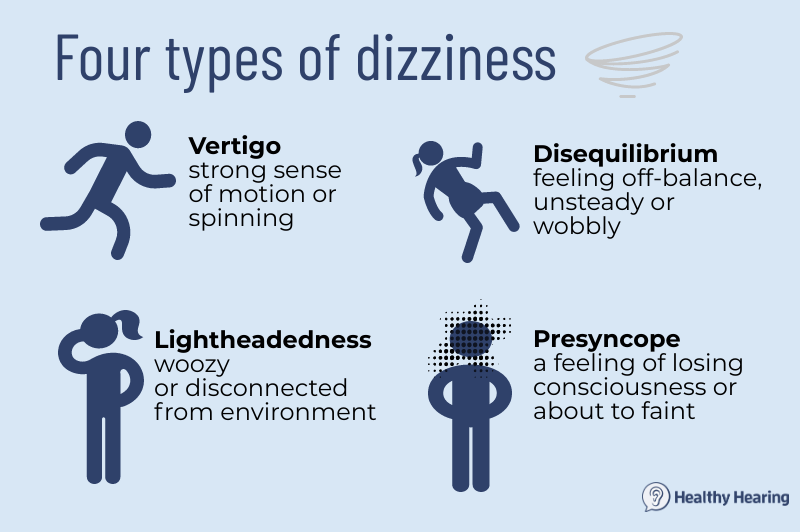
Dehydration
Lastly, dehydration can be a sneaky culprit behind dizziness. When your body lacks adequate fluid levels, it can affect various bodily functions, including blood pressure regulation and electrolyte balance. These disruptions can lead to dizziness as a result.
It is important to note that these are not the only causes of dizziness, but they are among the most common ones. If you are experiencing chronic or severe dizziness, it is always recommended to consult with a healthcare professional to determine the underlying cause and appropriate treatment.
Symptoms of Dizziness
Dizziness itself is a symptom, but it can present in different forms and often accompanies other sensations. Understanding the specific symptoms associated with dizziness can help narrow down the potential causes and provide clues for proper diagnosis.
Lightheadedness
Lightheadedness refers to a feeling of faintness or a sensation that you might pass out. It can be described as feeling woozy, unsteady, or weak. Lightheadedness is commonly associated with various causes of dizziness, including inner ear disorders, medications, low blood pressure, anxiety, and dehydration.
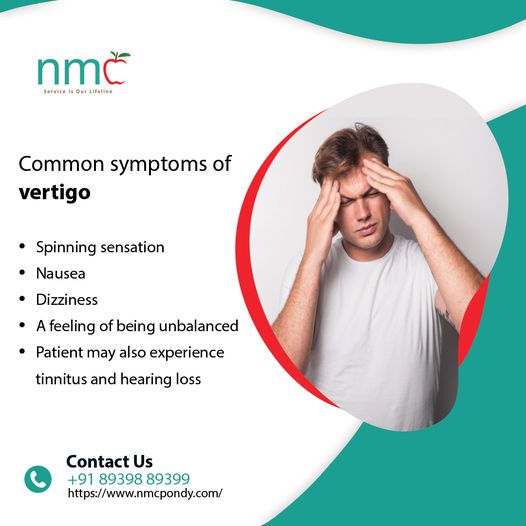
Vertigo
Vertigo is a specific type of dizziness characterized by a spinning or whirling sensation, as if you or your surroundings are moving when they are not. Vertigo often accompanies other symptoms such as nausea, vomiting, and trouble walking.
Imbalance or Unsteadiness
Problems with balance or a general feeling of unsteadiness can be another symptom of dizziness. It may feel as if you are constantly swaying, struggling to maintain your balance, or walking as if you were drunk.
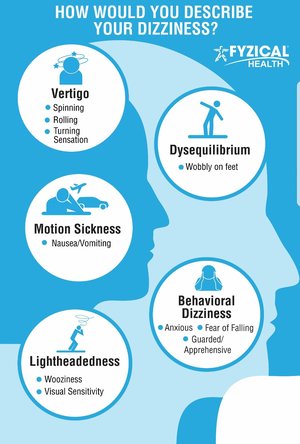
Feeling Faint or Woozy
Feeling faint or woozy is a common symptom of dizziness, often associated with low blood pressure or dehydration. It refers to a sensation of impending loss of consciousness, as if you are about to pass out.
It is important to remember that identifying symptoms alone is not enough to determine the cause of your dizziness definitively. It is crucial to consult with a healthcare professional for an accurate diagnosis and appropriate treatment.
In conclusion, dizziness can have various causes, ranging from inner ear disorders to medication side effects, low blood pressure, anxiety or panic disorders, and dehydration. Understanding the specific symptoms of dizziness, such as lightheadedness, vertigo, imbalance, and feelings of faintness, can help guide the diagnostic process. If you are experiencing dizziness, it is advisable to consult with a healthcare professional to determine the underlying cause and explore suitable treatment options. Remember, you don’t have to navigate the dizzying world alone – support and solutions are available to help you regain your balance and improve your overall well-being.
